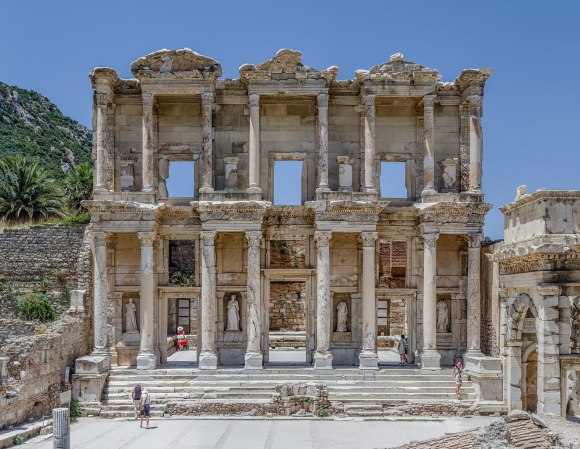
It has been ten months since the block of Wikipedia in Turkey. For almost a year, the 80 million people of Turkey have been denied access to information on topics ranging from medicine, to history, to current events on Wikipedia. After ten months, and in the midst of the school term, the need to restore access to Wikipedia in Turkey becomes more urgent every day.
The Wikipedia block in Turkey has had a profound effect on many citizens of Turkey. We have heard from professionals, students, and academics in Turkey and around the world who mourn the loss of this “source of the sources.” Students have lost a helping hand for homework. Teachers have lost a valuable education tool. Academics have lost a starting place for research. Professionals have lost a resource for understanding their industries. All over Turkey, people can no longer turn to Wikipedia for answers to the questions they may have.
This block also limits the spread of knowledge about Turkish history and culture around the world. The more than 300,000 articles on Turkish Wikipedia contain valuable information about Turkey’s history, culture, and geography—written for Turkish speakers, by Turkish speakers. Thousands of everyday people in Turkey have contributed to Turkish Wikipedia on topics from Ankara to Zonguldak. When access to Wikipedia is restricted, the development of this collaborative project suffers. And it makes it harder for the rest of us to learn about Turkey directly from the experiences and interests of the people living there.
Since April, the Wikimedia Foundation has made restoring access to Wikipedia in Turkey one of our highest priorities. We have pursued the legal remedies available to us in Turkish courts. We have filed in the Turkish constitutional court alleging a violation of Turkish and international law regarding free expression and freedom of the press, but have seen no action from the court to-date.
We have followed the situation closely with those directly affected, communicating with known community members and free knowledge advocates. We have endeavored to understand the reasons for the block from points of contact we have within the Turkish government. Our efforts have had a single purpose: lifting the ban while remaining committed to our values of free expression, openness, and neutrality.
For more than 16 years, volunteer editors around the world have built Wikipedia. Today, it is an incredible resource and one of the world’s most popular and beloved websites. Every month, more than 200,000 volunteers contribute to Wikipedia across hundreds of languages. These volunteers make good-faith efforts to cover all sides of any given issue, even controversial ones, consistent with Wikipedia’s values and policies of neutrality and reliable sourcing.
Wikipedia is made possible by everyday people who donate their time from every corner of the globe, sharing a commitment to neutral, verifiable information, free to all.
This is an utterly unique process in the world. No other internet platform or knowledge community works in this way. The Wikimedia movement is global, distributed, and interconnected — which means that censorship in one part of the world is felt acutely by us all. Censorship runs counter to our shared mission of free knowledge for every single person.
The Wikimedia Foundation will continue to advocate for everyone’s right to read and share knowledge freely and without restriction, including in Turkey. In the meantime, we stand with the Wikimedia community in Turkey and remain committed to our efforts to restore access in the country. We will continue to work to lift the ban, in accordance with Wikimedia values. We will work to spread awareness of how Wikipedia works. Throughout these efforts, we will maintain our opposition to censorship, and support for freedom of information and expression around the world.
For now, we encourage people everywhere to continue contributing to our core mission of making knowledge freely available to everyone. And to the Wikipedia community in Turkey, and those around the world following this issue: we are with you.
Juliet Barbara, Communications Consultant
Wikimedia Foundation
Editor’s note: This article was originally published in November 2017. It was updated in March 2018 with a new date and time period for #WeMissTurkey.

Can you help us translate this article?
In order for this article to reach as many people as possible we would like your help. Can you translate this article to get the message out?
Start translation